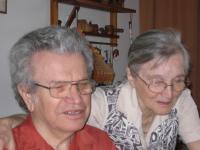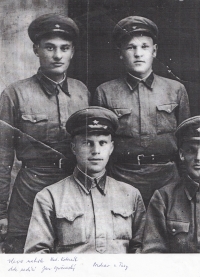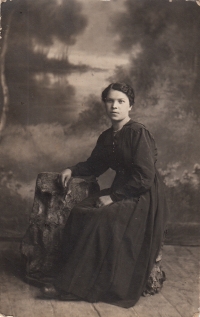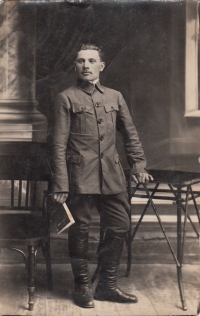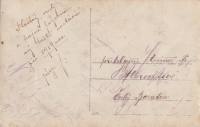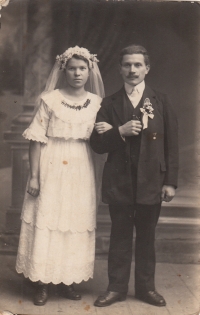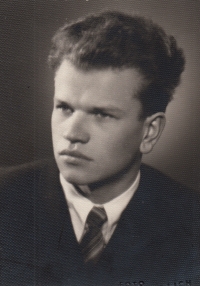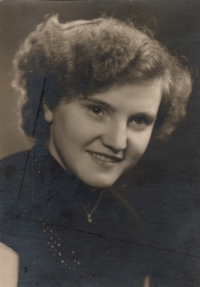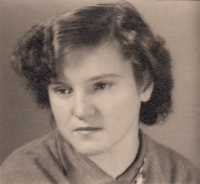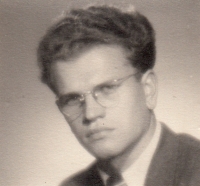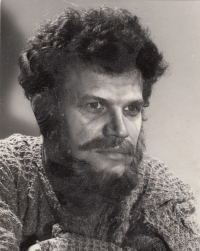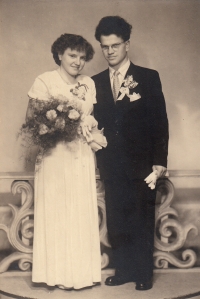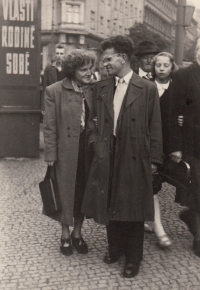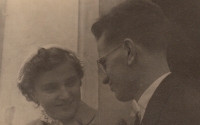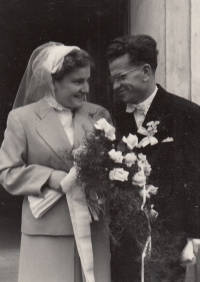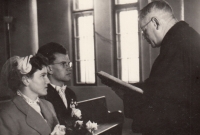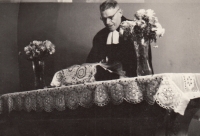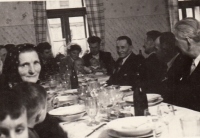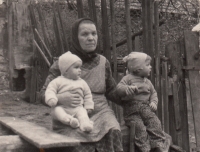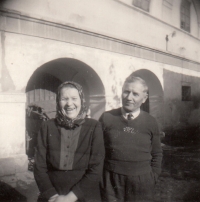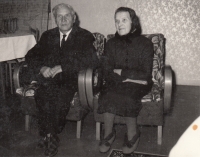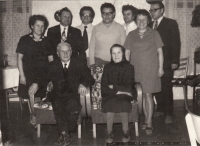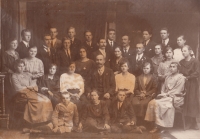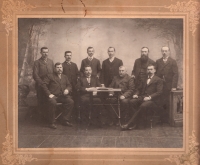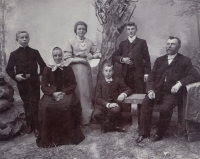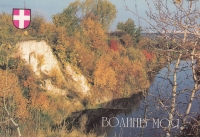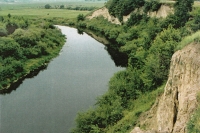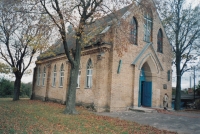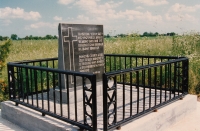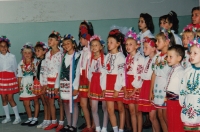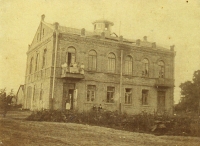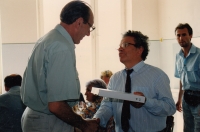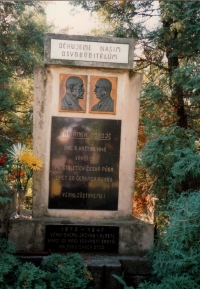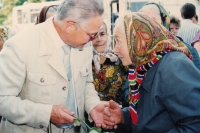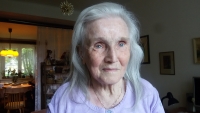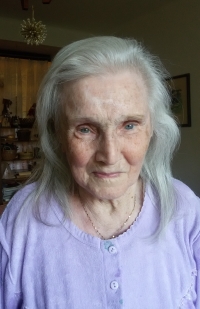If you had experienced what we did in Volhynia, you would have run away too, you wouldn’t have even waited for a train

Download image
Josef Vlk was born on 29 April 1932 in the Czech village of Český Boratín near the town of Lutsk in the Volhynia Voivodeship. The territory belonged to Poland at that time. His ancestors came from the Jilemnice region in Podkrkonoší and the Boskovice region in Moravia. He grew up in the evangelical family of Anna and Vladislav Vlk, the fifth of seven siblings, in a Ukrainian rural environment, in an area where Czechs were a two percent minority. The Vlks farmed an eight-hectare farm, and father was an organist in the church. In his story-telling, Josef recalls his childhood in Boratín, the Czech school in Lutsk, to which he walked seven kilometres, his ancestors, the dairy, the mill, cultural associations, the evangelical church. He speaks about coexistence with Ukrainians, Poles and other nationalities, and how the life conditions of the Boratín inhabitants were transformed by the frequent changes of regimes. Born under Polish rule, Josef lived through both Soviet and Nazi rule during World War II, when Volhynia’s inhabitants were additionally threatened by bands of robbers pretending to be members of The Ukrainian Insurgent Army (or Bandera´s army). Josef’s three older brothers were among the eighty Boratín men who volunteered to fight for their country in the Czechoslovak army corps. In February 1947, the Vlk family, along with other Boratín Czechs, were repatriated to Czechoslovakia, to the village of Chotiněves in Litoměřice, where seventeen families from Boratín found a new home. Josef graduated from the Litoměřice grammar school in 1951, and because he excelled in mathematics, he decided to study at the Czech Technical University in Prague, from which he graduated in 1956. He married Anna Albrechtová, four years younger than him, also a native of Boratín. Anna graduated from the secondary chemical school in Lovosice. The young family moved to Neštěmice, where Anna was assigned. Around 1960 they moved to Ústí nad Labem, where they raised two children and lived there until old age. In the mid-1980s, Josef was extorted by his boss to join the Communist Party under threat of losing his job. He succumbed to the pressure, which he has not fully come to terms with to this day. In the 1990s, the Vlks became intensely interested in the history of Boratín and their ancestors. In 1996, after their retirement, the couple went to Boratín for the first time after forty-nine years. In 1997 they organized a trip of former Boratín citizens to their native village and began to collect information about life in Volhynia. At the end of 2000, they published a voluminous book The History of Český Boratín. They own a collection of photographs and archival materials for further processing. They share the fate of thousands of re-migrants from the Volhynia region of today’s Ukraine.
